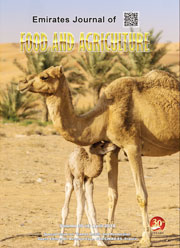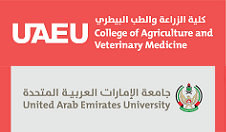Cytotoxic effect of multifruit polyphenol preparation on human breast cancer cell lines
DOI:
https://doi.org/10.9755/ejfa.2021.v33.i4.2683Abstract
Natural compounds are extensively used in the treatment of various diseases. Regular consumption of polyphenols plays an important role in the protection of health by reducing the risk of degenerative diseases, including cancer. The evaluation of the cytotoxic effect of the newly obtained multifruit polyphenolic preparation (composed of seven fruit) on T47D and MCF-7 breast cancer cells and MCF-12A normal cells. The PP was produced on the basis of combined ultrafiltrates obtained from chokeberry, raspberry, wild strawberry, apricot, peach, bilberry, and cranberry. The experiments were performed using human mammary gland cancer cell lines T47D (ductal cancer) and MCF-7 (adenocarcinoma) and normal breast cell line MCF-12A. Chromatographic techniques confirmed the highest contribution of cyanidin 3-O-glucoside, p-coumaroyl glucoside and chlorogenic acid in the PP. The PP exhibited dose-dependent cytotoxic effects towards MCF-7 and T47D cancer cell lines (IC50 = 1.2 μg . cm-3) and MCF-12A cells (IC50 = 0.6 μg . cm-3). The MTT cytotoxicity assay and microscopic observations confirmed the cytopathic effect of the PP on cell lines. It is supposed that berry polyphenols interfered with estrogen receptors leading to changes in the production of paracrine growth factors and therefore, PP was less cytotoxic towards the MCF-7 and T47D cell lines than against the MCF-12A cell line.
Downloads
References
Ahmeda, F. Ijaza, B. Ahmada, Z. Farooqb, N. Sarwara, M. B. and T. Husnain. 2020. Modification of miRNA Expression through plant extracts and compounds against breast cancer: Mechanism and translational significance. Phytomedicine 68: 153168.
Aiyer, H. S. Warri, A. M. Woode, D. R. Hilakivi-Clarke, L. and R. Clarke. 2012. Influence of berry polyphenols on receptor signaling and cell-death pathways: Implications for breast cancer prevention. J. Agric. Food Chem. 60: 5693-5708.
Basu, P. and C. Maier. 2018. Phytoestrogens and breast cancer: In vitro anticancer activities of isoflavones, lignans, coumestans, stilbenes and their analogs and derivatives. Biomed. Pharmacother. 107: 1648–1666.
Bowen-Forbes, C. S. Zhang, Y. and M. G. Nair. 2010. Anthocyanin content, antioxidant, anti-inflammatory and anticancer properties of blackberry and raspberry fruits. J. Food Compos. Anal. 23: 554-560.
Braakhuis, A. J. Campion, P. and K. S. Bishop. 2016. Reducing breast cancer recurrence: the role of dietary polyphenolics. Nutrients 8: 547.
DangVu, K. Carlettini, H. Bouvet, J. Côté, J. Doyon, G. Sylvain, J. F. and M. Lacroix. 2012. Effect of different cranberry extracts and juices during cranberry juice processing on the antiproliferative activity against two colon cancer cell lines. Food Chem. 132: 959-967.
DeSantis, C. E. Ma, J. Gaudet, M. M. Newman, L. A. Miller, K. D. Sauer, A.G. Jemal, A. and R. L. Siegel. 2019. Breast cancer statistics 2019. CA Cancer J. Clin. 69: 438-451.
Farvid, M. S. Chen, W. Y. Rosner, B. A. Tamimi, R. M. Willett, W. C. and A. H. Eliassen. 2019. Fruit and vegetable consumption and breast cancer incidence: Repeated measures over 30 years of follow-up. Int. J. Cancer 144: 1496-1510.
Flis, S. Jastrzebski, Z. Namiesnik, J., Arancibia-Avila, P. Toledo, F. Leontowicz, H. Leontowicz, M. Suhaj, M. Trakhtenberg, S. and S. Gorinstein. 2012. Evaluation of inhibition of cancer cell proliferation in vitro with different berries and correlation with their antioxidant levels by advanced analytical methods. J. Pharm. Biomed. Anal. 62: 68-78.
Fu, F. M. Gilmore, R. C. and L. K. Jacobs. 2018. Ductal Carcinoma In Situ. Surg Clin N Am 98: 725–745.
Georgiev, K. Slavov, I. and I. A. Iliev. 2019. Antioxidant activity and antiproliferative effects of Lycium barbarum’s (Goji berry) fractions on breast cancer cell lines. Folia Medica 61: 104-112.
Häkkinen, S. Heinonen, M. Kärenlampi, S. Mykkänen, H. Ruuskanen, J. and R. Törrönen. 1999. Screening of selected flavonoids and phenolic acids in 19 berries. Food Res Int 32: 345-353.
Kumar, A. Butt, N. A. and A. S. Levenson. 2016. Natural epigenetic-modifying molecules in medical therapy. Chapter 39. Med. Epigenet. Ed. by Tollefsbol T.O. ISBN 978-0-12-803239-8, 747–798.
Martel, F. Guedes, M. and E. Keating. 2016. Effect of polyphenols on glucose and lactate transport by breast cancer cells. Breast Cancer Res Treat 157: 1-11.
Seijen, M. Lips, E. H. and A. M. Thompson. 2019. Ductal carcinoma in situ: to treat or not to treat, that is the question. Br. J. Cancer 121: 285–292.
Sinha, D. Sarkar, N. Biswas, J. and A. Bishayee. 2016. Resveratrol for breast cancer prevention and therapy: Preclinical evidence and molecular mechanisms Seminars in Cancer Biology F40–41: 209–232.
Sun, J. and R. H. Liu. 2006. Cranberry phytochemical extracts induce cell cycle arrest and apoptosis in human MCF-7 breast cancer cells. Cancer Lett. 241: 124-134.
Szwajgier, D, Paduch, R. Kukuła-Koch, W. Polak-Berecka, M. and A. Waśko. 2020. Study on Biological Activity of Bread Enriched with Natural Polyphenols in Terms of Growth Inhibition of Tumor Intestine Cells. J. Med. Food 23: 181-190.
Ullah, N. Ahmad, M. Aslam, H. Tahir, M. A. Aftab, M. Bibi, N. S. and S. Ahmad. 2016. Green tea phytocompounds as anticancer: A review. Asian Pac. J. Trop. Dis. 6: 330-336.
Weaver, J. Briscoe, T. Hou, M. Goodman, C. Kata, S. Ross, H. McDougall, G. Steward, D. and A. Riches. 2009. Strawberry polyphenols are equally cytotoxic to tumourigenic and normal human breast and prostate cell lines. Int. J. Oncol. 3: 777-786.
Zafar, A. Singh, S. and I. Naseem. 2017. Cytotoxic activity of soy phytoestrogen coumestrol against human breast cancer MCF-7 cells: Insights into the molecular mechanism. Food Chem. Toxicol. 99: 149-161.
Ziaja-Sołtys, M. Radzki, W. Nowak, J. Topolska, J. Jabłońska-Ryś, E. Sławińska, A. Skrzypczak, K. Kuczumow, A. and A. Bogucka-Kocka. 2020. Processed Fruiting Bodies of Lentinus edodes as a Source of Biologically Active Polysaccharides. Appl. Sci. 10: 470.










 .
. 